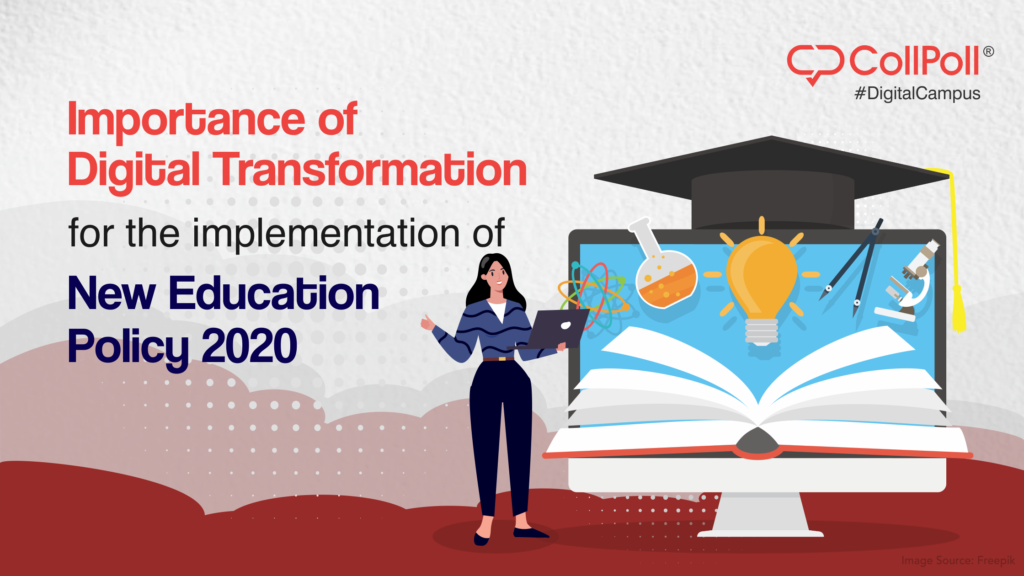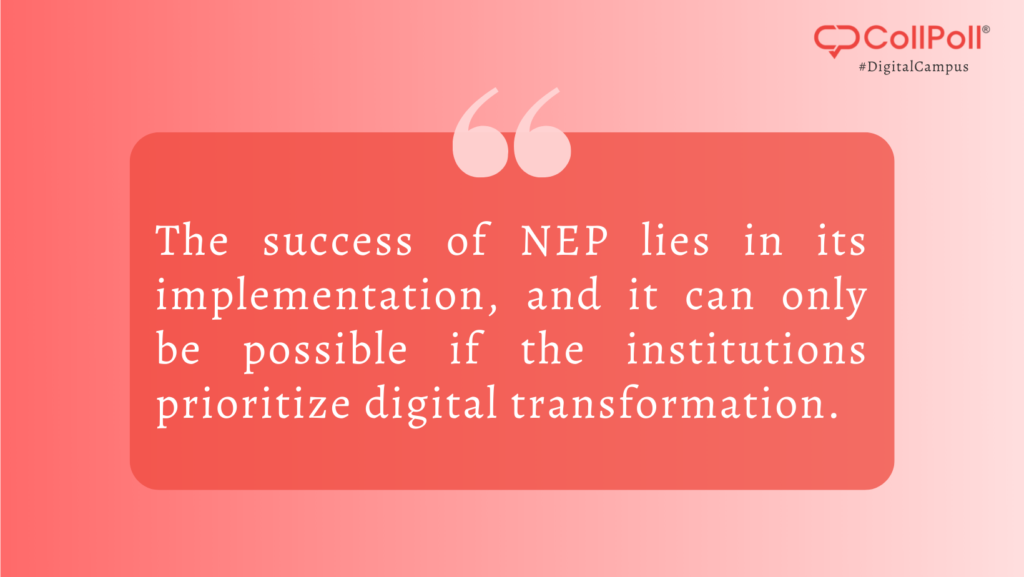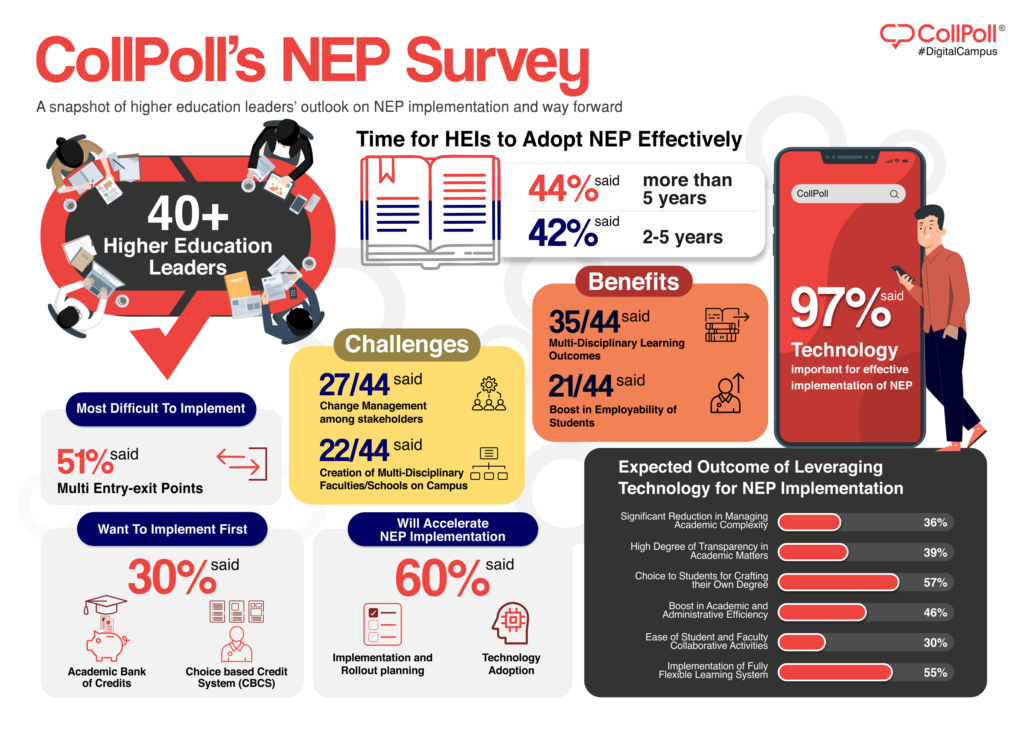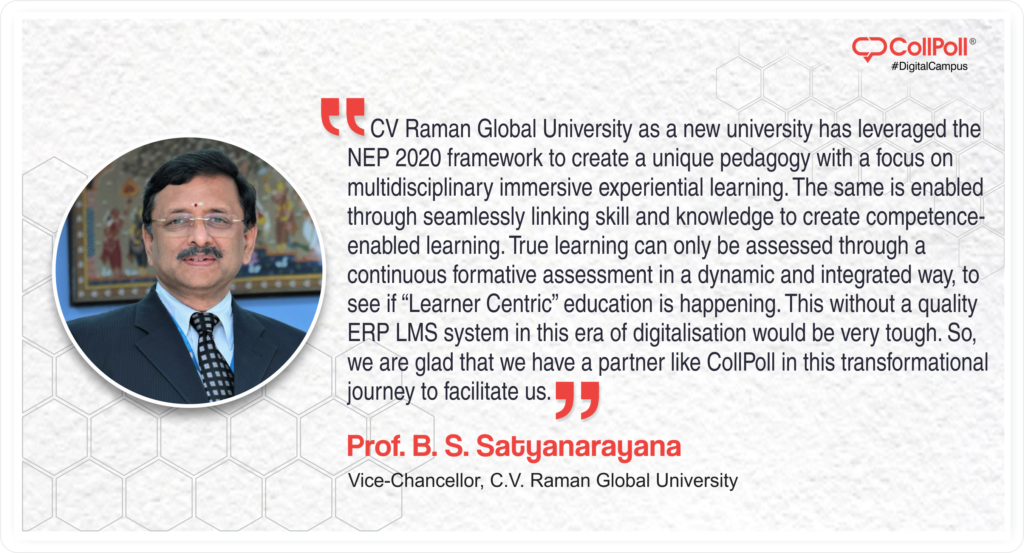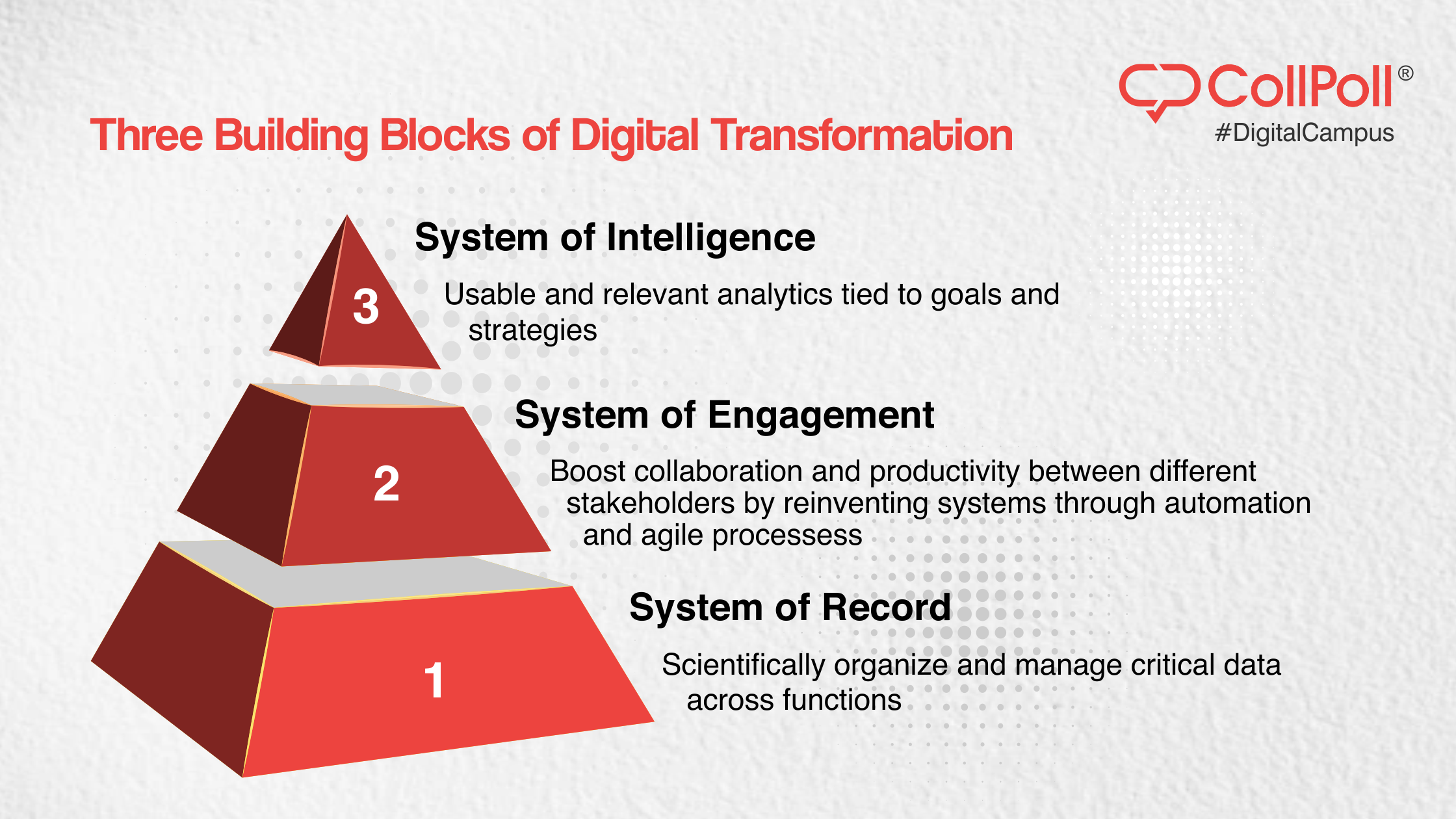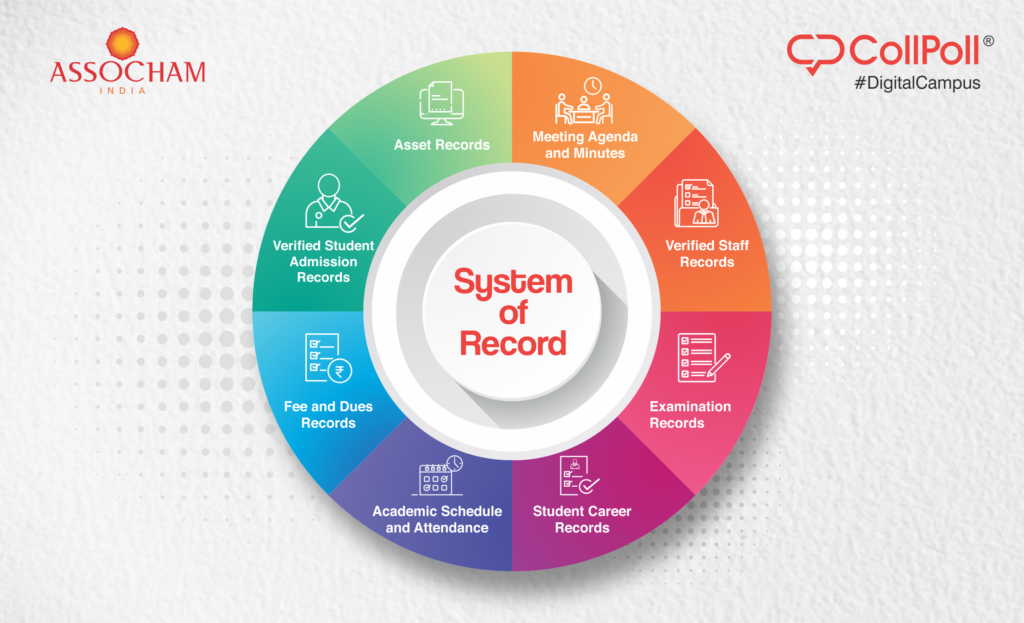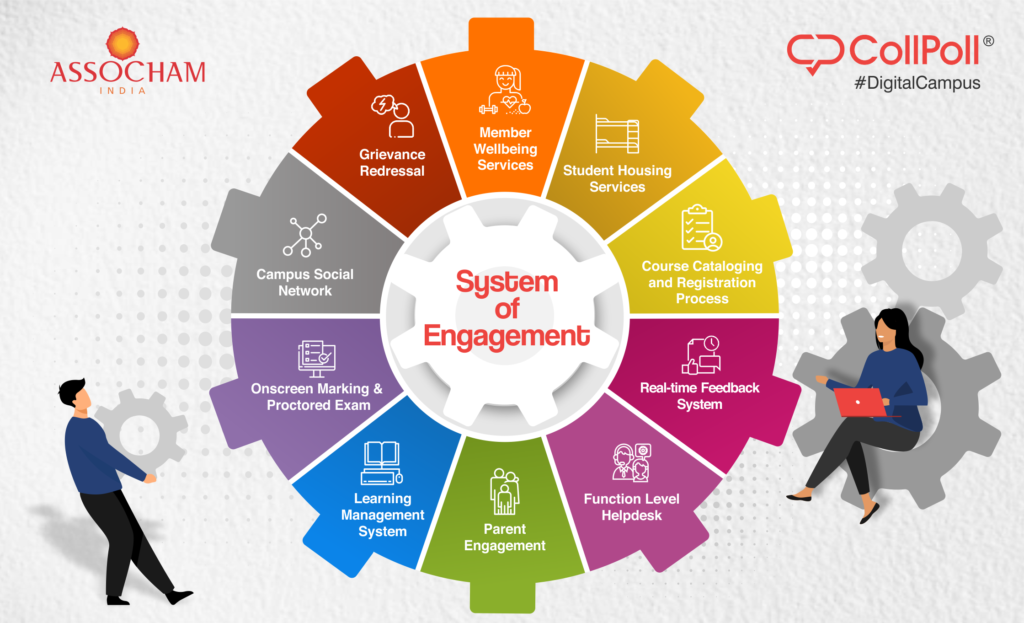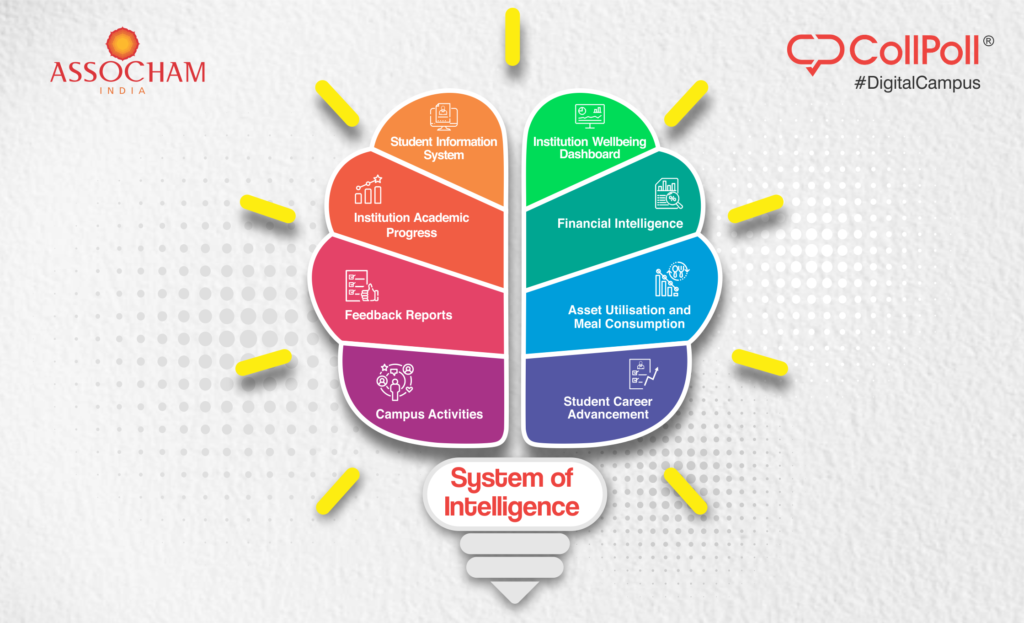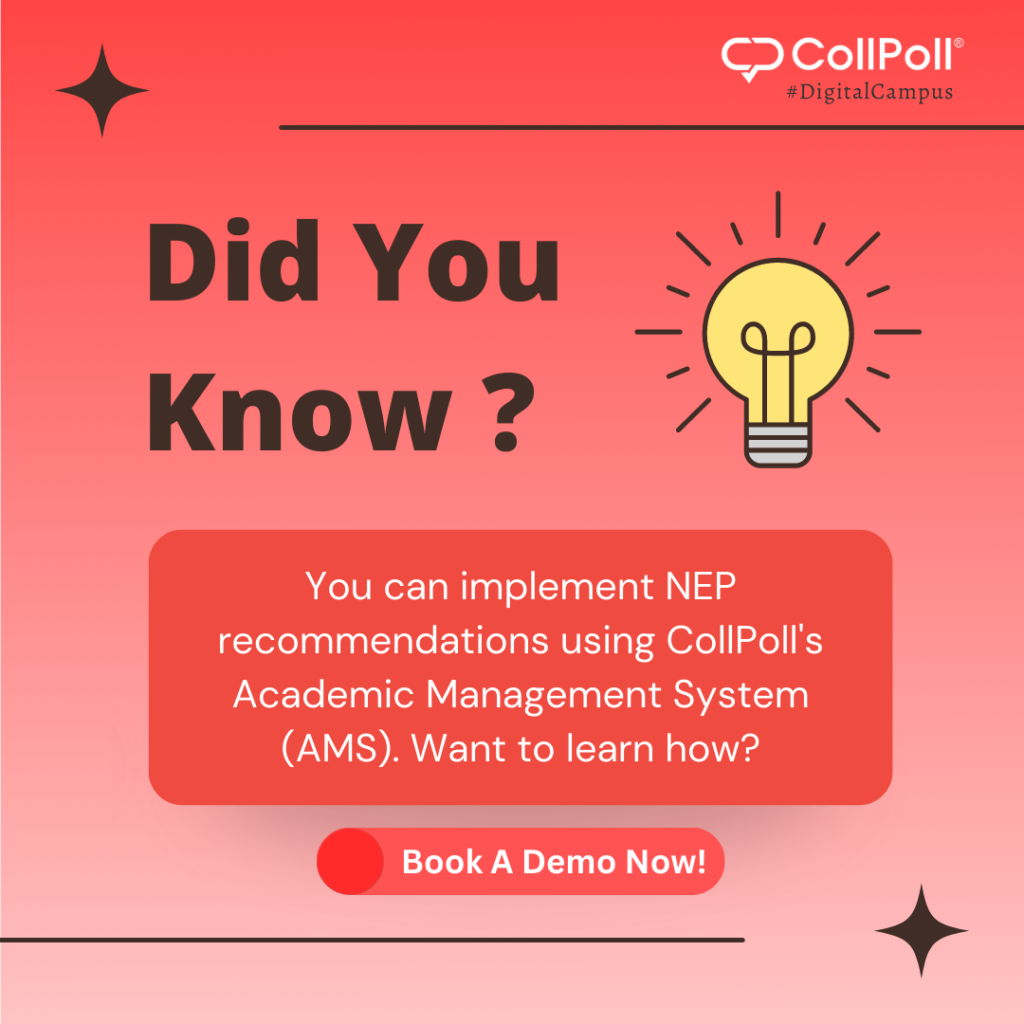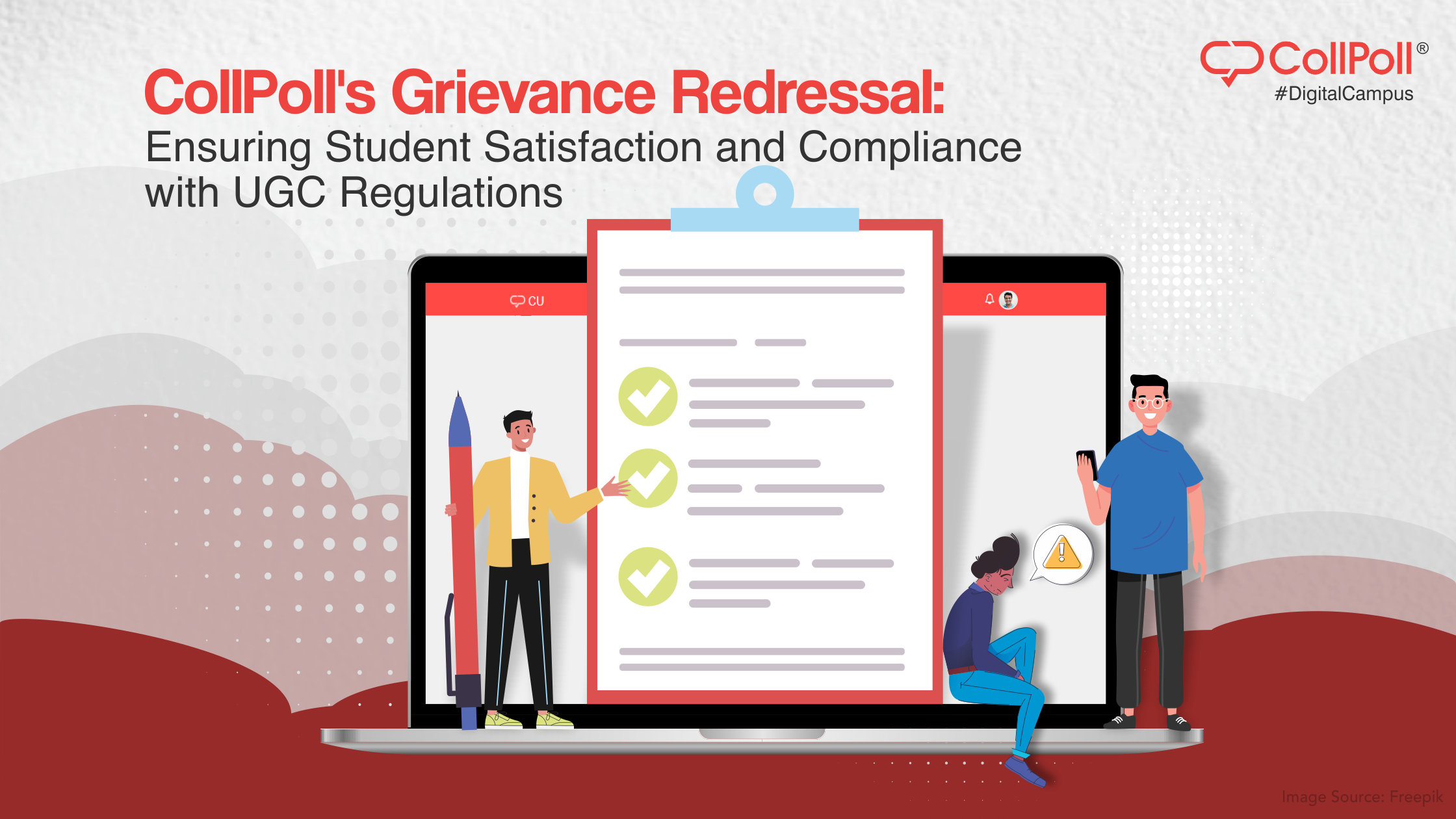The first-ever National Education Policy was announced in 1968, and since then, it has gone through several modifications every few decades. It was revised in 1986, then in 1992, and again in 2020. On July 29, 2020, the Indian education system witnessed a historic day when the Ministry of Education made significant reforms in the education structure under NEP 2020.
Over the last decade, India has evolved into an ‘information-intensive society and there is a growing need to adopt technology in the field of education. According to the Policy, one of the core principles guiding the education system will be the ‘extensive use of technology in teaching and learning, removing language barriers, increasing access as well as education planning and management.
Overview of NEP 2020!
With over 51000 institutions and almost 40 million students, India has the world’s third-largest higher education system. The New Education Policy (NEP) was unveiled in July 2020 as India’s first and most comprehensive education policy, designed to guide the sector’s development and reinvigorate its institutions. As the education sector struggles with rote learning, slow skill development, and lack of employability, NEP introduces opportunities for growth in all areas.
NEP is a much-needed, forward-looking policy, however, the benefit of this policy cannot be harnessed if the implementation is not backed by technology. The right use of technology is critical towards greater student success and education outcomes. The success of NEP lies in its implementation, and it can only be possible if the institutions prioritise digital transformation.
Changing The Face of Higher Education Institutions with NEP 2020
The new education policy (NEP 2020) has evolved the way institutions offer higher education, bringing major changes at different levels. Taking a closer look at its impact will help you to understand what it means.
-
Holistic and Multidisciplinary Education
Students can bring multidisciplinary subjects and vocational courses together and learn at their pace. For undergraduate education programs that run for 3-4 years, NEP policy 2020 allows ‘multiple exit options’ & rewards relevant ‘certification’ within the graduation tenure. When students complete one year, they receive certification, after two years- an advanced diploma, three years of successful completion- a bachelor’s degree, and after four years of UG- a degree for research intelligence.
Efforts are also in progress to establish Multidisciplinary Education and Research Universities (MERUs), which will be on the lines of IITs and IIMs to globalize educational standards. Also, the National Research Foundation will be the apex body to motivate research culture among students.
-
Rules & Regulations
The Higher Education Commission of India (HECI) will be an umbrella body to monitor higher education, except for medical and legal education. Its four independent verticals include National Higher Education Regulatory Council (NHERC) for regulation, Higher Education Grants Council (HEGC) for funding, General Education Council (GEC) for standard-setting, and National Accreditation Council (NAC) for accreditation. This tech-powered apex body will work without human intervention and penalize HEIs that fail to comply with norms and standards.
-
Motivated, Energized, and Capable Faculty
One of the main NEP 2020 highlights is its recommendation for highly motivated, skilled, and energized faculty. The teachers will be handpicked through a transparent and well-defined recruitment process. The proposal also focuses on incentivising excellence, freedom to design curriculum/pedagogy, and encouraging institutional leadership. If they couldn’t adhere to the basic norms, the faculty will be held accountable.
-
Teacher Education
The suggestions were made to introduce a comprehensive National Curriculum Framework for Teacher Education, NCFTE 2021. The NCTE will prepare it in consultation with NCERT. Also, the authorities will take strict actions against substandard stand-alone Teacher Education Institutions (TEIs).
-
Enhanced Mentoring Mission
According to the New Education Policy 2020, a National Mission for Mentoring will be built with experienced and knowledgeable faculty. It will also include those with proficiency in teaching Indian languages and who can support teachers in the short and long term.
-
Financial Support for Students
Merit-based incentives were announced for those who belong to SC, ST, OBC, and other SEDGs. Private institutions were encouraged to offer more scholarships to talented and deserving students who come from financially weak backgrounds. And those who were already receiving scholarships, the National Scholarship Portal was asked to foster and track their progress.
-
Open and Distance Learning
With the vision to increase the gross enrollment ratio (GER), National Education Policy 2020 introduced several measures, including enough funding for research, online courses & digital repositories, dedicated student services, credit-based recognition of MOOCs, etc. The goal was to make distance learning as effective as in-class programs.
-
Online Education and Digital Education
Online education was another pressing topic of NEP 2020, considering the rise of the pandemic and the sudden need to adapt to digital learning. A committed unit was created in MHRD to look after the digital infrastructure and content for higher education institutions and schools. It ensures that students get quality and regular education whenever in-person classes are impossible.
-
Better Finance of the Education System
The Centre and States authorities will make equal efforts to increase public investment in the Education sector to 6% of GDP.
-
Boost in Adult Education
Among the key features of the New Education Policy 2020, adult education was critical. It aimed at achieving 100% youth and adult literacy nationwide.
Need for Digital Transformation
Team CollPoll surveyed 40+ institutions including OP Jindal Global University (JGU), Bennett University, Rishihood University, Tata Institute of Social Sciences (TISS), DY Patil International University, IIM Udaipur, Chitkara University, Vidyashilp University and RV University, among others. The key insights from the survey captured the following data, highlighting the importance of Digital Transformation of educational institutions to attain the outcomes of the National Education Policy (NEP).
“95% of the institutions have listed technology as the key enabler for the effective implementation of NEP and over 63% of respondents noted that technology adoption and effective planning for policy implementation and rollout will be key accelerators for NEP adoption.”
Significance of Digital Transformation
The 2020 pandemic has demonstrated the importance and urgency of incorporating digital technologies into education. With digital transformation in the education sector not only the processes have been digitilized but the institutions have also taken steps towards adopting products to enhance the online teaching and learning experience.
This focuses on –
-
Improved Accessibility
Digital technologies enable learners, educators, and all the other stakeholders to access learning resources more readily than traditional education. People from across the world, have access to classes and resources through the internet. Moreover, technologies remove any kind of barriers between students and faculty and improve the digital learning experience.
-
Interactive Learning
Micro lessons, videos, interactive tests, online quizzes etc. are all different learning formats which are transforming education. Computer technology and AI enable educational methods such as adaptive learning where each learner is allowed to learn in a way appropriate to them delivers customized learning experiences.
CollPoll offers an enhanced teaching and learning platform and makes tasks simpler, secure, and more collaborative on a single dashboard.
-
Smart Exam Portals
Assessment tests and grading are also a few challenges for higher education institutions. To prevent such problems, institutions can use tools like CollPoll to keep a check on students during exams (by taking regular screenshots), offer unbiased grades/marks, manage exam schedules online, conduct exams based on outcome-based education, and use an array of modules and features.
By implementing an online examination management system and focusing on AI-proctored online exams, higher education institutions can seamlessly digitise their key academic processes.
-
Time-Saving Processes
By enabling institutions to manage student enrolment, verify admission documents, engage prospective students, initiate and track fee collection, and handle academic and non-academic records online, among others, a lot of time is saved.
The ease of operations and availability of entire academic and non-academic activities on a single online platform boosts student engagement, reduces the workload for staff and administrators, and enhances user experience.
In the wake of recent epidemics and pandemics, we need to be prepared with alternative modes of quality education wherever and whenever traditional and in-person education modes are impossible.
As a result, the National Education Policy 2020 emphasizes the importance of leveraging technology’s advantages while acknowledging its potential risks. To reap the benefits of online/digital education, carefully designed and appropriately scaled pilot studies must be conducted. To ensure quality education for all, existing digital platforms and ICT-based educational initiatives must be optimized and expanded to meet existing and future challenges.
Thus, the digital transformation of higher education institutions becomes imperative!
Framework for Digital Transformation in HEIs
The value of technology to higher education institutions extends beyond boosting productivity to enhancing learning, collaboration, and decision-making. Below is a framework that represents the three building blocks of digital transformation for higher education institutions that can help you manage critical institutional data, boost collaboration, and achieve the set objectives.
Here are The Three Building Blocks of Digital Transformation:
1. System of Record:
It is critical to scientifically organize and manage critical data across various functions of the institution. This includes maintaining records of, verified student admission, fee and dues, examination, assets, verified staff data, academic schedule and attendance, and student career, among others.
2. System of Engagement:
To boost collaboration and productivity between different stakeholders, higher education institutions need to reinvent systems through automation and agile processes. From campus social network and student housing services to LMS, parent engagement, and real-time feedback systems, many such services must be configured within the institution.
3. System of Intelligence:
Usable and relevant analytics tied to institutions’ goals and strategies are imperative in the long run. The institutions should focus on adopting a good student information system, accessing comprehensive analysis, campus asset utilization, and other functions to enhance the teaching and learning experience.
Driving Digital Transformation with CollPoll
CollPoll Digital Campus is a comprehensive suite of 40+ technologies offering a web and mobile-based campus automation, digital learning and analytics platform, designed to address the rising complexity, competition, and digital compliance through a complete digital transformation of higher education institutions.
The objective is to empower students, faculty and staff, among other stakeholders, enable management to make informed decisions, improve the student experience on campus as well as keep parents informed and updated on key activities happening in the institution.

